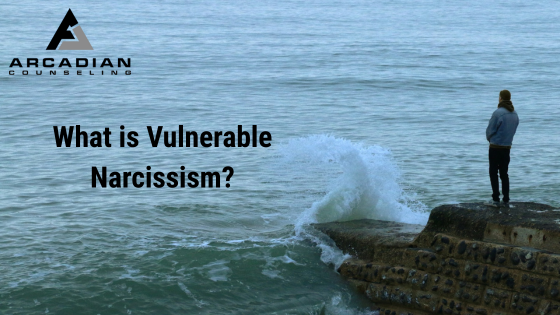When most of us hear the term “narcissism,” we imagine someone who is arrogant, self-absorbed, and overly confident. However, not all narcissism looks the same. There is a lesser-known but equally significant form called vulnerable narcissism, which manifests quite differently from the grandiose narcissism many of us recognize.
Rather than being outwardly boastful and entitled, individuals with vulnerable narcissism experience deep insecurity, hypersensitivity to criticism, and an intense need for external validation.
Understanding Vulnerable Narcissism

Vulnerable narcissism, sometimes referred to as covert narcissism, is characterized by low self-esteem, extreme sensitivity to criticism, and a deep-seated fear of rejection or failure. Unlike grandiose narcissists, who exude confidence and dominance, vulnerable narcissists tend to appear shy, anxious, or even self-critical. However, underneath this exterior lies a fragile self-worth that depends heavily on external validation.
Individuals with vulnerable narcissism often experience:
- Hypersensitivity to criticism – Even constructive feedback feels like a personal attack.
- Feelings of inadequacy – A persistent sense of not being “good enough.”
- Social withdrawal – Avoiding situations where they might be judged or criticized.
- Passive-aggressive tendencies – Expressing frustration indirectly rather than openly.
- Envy and resentment – Comparing themselves to others and feeling bitter about their perceived shortcomings.
- Need for validation – Seeking reassurance but often feeling unsatisfied even when they receive it.
While these traits may seem different from the stereotypical narcissist, they stem from the same core issue: a fragile and unstable self-esteem.
How Does Vulnerable Narcissism Develop?

Psychologists believe that narcissistic traits, including vulnerable narcissism, develop as a response to early life experiences.
- Inconsistent parental support – Growing up with caregivers who alternated between excessive praise and criticism can create confusion about self-worth.
- Emotional neglect or invalidation – Children who feel unseen or unheard may develop narcissistic traits as a way to cope with feelings of insignificance.
- Excessive criticism or unrealistic expectations – Constant scrutiny or pressure to be “perfect” can lead to deep insecurities and an inability to tolerate failure.
- Early experiences of rejection or shame – People who experience frequent rejection, bullying, or social exclusion may develop vulnerable narcissism as a defense mechanism.
Rather than developing a stable sense of self-worth, people with vulnerable narcissism often rely on external validation while simultaneously fearing rejection or criticism. This creates a cycle where they seek praise but struggle to believe it when they receive it.
Impact on Relationships

Vulnerable narcissism can make personal and professional relationships challenging. Since these individuals are highly sensitive to perceived slights, they may react defensively or withdraw emotionally when they feel criticized. This creates difficulties in maintaining healthy communication and trust.
Some common relationship challenges include:
- Emotional volatility – Frequent mood swings based on how they perceive others’ opinions of them.
- Fear of abandonment – Difficulty trusting that others genuinely care for them.
- Passive-aggressiveness – Indirect communication which leads to misunderstandings.
- Difficulty handling feedback – Taking constructive criticism personally and reacting with defensiveness or withdrawal.
Relationships with individuals who have vulnerable narcissism are not doomed. With awareness and effort, both the individual and their loved ones can work towards healthier dynamics.
Managing Vulnerable Narcissism
If you recognize traits of vulnerable narcissism in yourself or someone close to you, there are ways to address these challenges:
For Individuals with Vulnerable Narcissism
- Develop self-awareness – Recognize patterns of hypersensitivity and validation-seeking to help break the cycle.
- Challenge negative self-talk – Learn to reframe self-critical thoughts in a more balanced way.
- Build internal self-worth – Engage in activities that foster genuine self-confidence instead of external praise.
- Seek therapy – Work with a therapist to uncover deep-seated insecurities and develop healthier coping mechanisms.
For Friends, Family, and Partners
- Practice patience and empathy – Understand their reactions stem from deep insecurity rather than intentional harm.
- Encourage open communication – Help them express their feelings without fear of rejection.
- Set healthy boundaries – Ensure that the relationship remains mutually respectful and balanced.
- Validate without enabling – Offer reassurance while encouraging personal growth and resilience.
Final Note from Arcadian
Vulnerable narcissism is fairly complex and often misunderstood. While it can lead to challenges in relationships and self-perception, with self-awareness and support, folks with these tendencies can learn to develop a more stable and secure sense of self-worth.
Life is short; if you or someone you love struggles with traits of vulnerable narcissism, consider seeking professional support to navigate these challenges and build a more fulfilling sense of self.
James Killian, LPC is the Principal Therapist & Owner of Arcadian Counseling in Greater New Haven, CT where they specialize in helping over-thinkers, high achievers, and perfectionists reduce stress, increase fulfillment and enhance performance so they can move From Surviving To Thriving.

